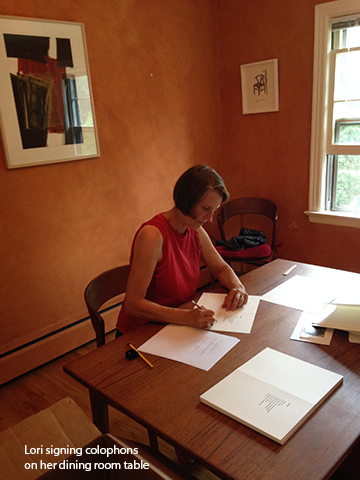FULL QUIVER, composed of ten interlinking narrative prose poems by Lori Anderson Moseman, queries the essential nature of the book and its attendant writing systems. Each of the poems in FULL QUIVER (with the exception of the poetic epilogue) is accompanied by a Luwian Hieroglyph and a QR code which will lead readers to one of these subsequent web pages. The Luwian Hieroglyphics are not unlike modern day emoticons in that some of them are immediately translatable, but like the Japanese emoji, the meanings of some of Luwian logograms and syllable glyphs are less obvious. Luwian was a Bronze Age language spoken in Anatolia, from roughly 1700 to 600 BCE. The Luwian writing system has been translated by scholars from texts where the hieroglyphs were accompanied by cuneiform equivalents. What remains of the Luwian writings are those that were carved into stone, but even many of these are fragmented.
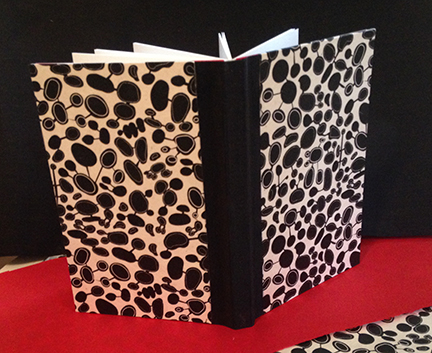
While QR code may be familiar to most contemporary readers, the code itself is cannot be read in the same way that one reads alphabetic text or even hieroglyphic texts. Rather these computer generated codes, which were developed for the Japanese automotive industry during the late 20th century, can only be read by another computer such as a smart phone equipped with a QR reading app.
For many readers, the QR codes will be unreadable and hence function largely as visual illustrations rather than as text. Others, however, will feel drawn to use their phones to scan the code. Doing so will lead the reader to webpages where there are sound files of the poet reading the poems, further texts by the poet, and translations of the Luwian glyphs. The QR codes thus serve a dual purpose: as compelling visual images and as footnotes offering additional information for curious readers. But however much we might be enamored of modern technology, QR codes have their shortcomings not the least of which is that they cannot be proofread by the human eye.
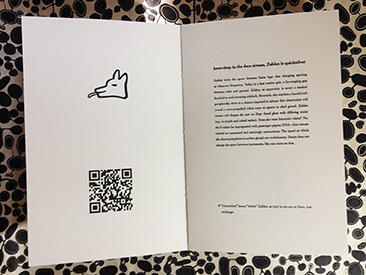
While the book exists as an independent object, when combined with these web pages, the two together serve to document a dialogue between poet and artist. The additional poems appearing on these pages were written by Lori in response to the Luwian Hieroglyphs and QR codes that I had selected in response to her first set of poems. In addition to Lori's poem responses, you will also find translations of the Luwian hieroglyphs and sound files of Lori reading the first sequence of poems. [Thanks to Christopher Funkhouser for recording them. and I hope to restore them here asap.]
The physical book measures 6.5 x 9.75 inches. The poems and the images were printed letterpress on Lettra paper. The typeface is Cochin was designed in 1913 by George Peignot, who named it after the mid-17th century Nicolas Cochin, and subsequently reworked in the late 1970s by Matthew Carter. The books are covered with a black and white Nepalese paper named Pluto Print which has a wonderful mid-twentieth century astro-lounge feel to it — our little homage to the historic flyby of Pluto in the summer of 2015 when this book was being made.
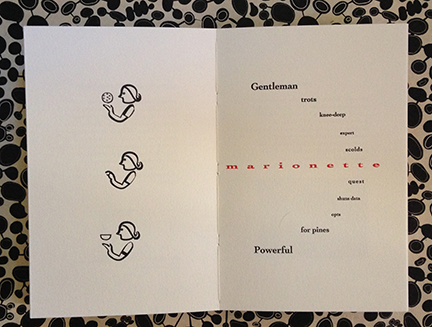
Full Quiver was printed in an edition of 20 of which 18 are for sale @ $500. Contact me if you are interested in purchasing a copy: info (at) propolispress (dot) com
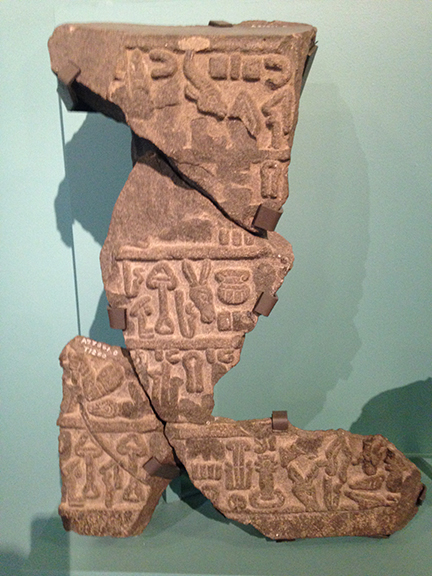
This more ephemeral website was created with the Drupal 7 platform. As you navigates from one webpage to the next, content is pulled from the database hosted on a server computer, communicated over the internet connection and delivered to your browser window. There are many variables controlling the display of the content in the browser window not the least of which is the type of computing device that you are using. Additionally, given that most computers are not be equipped with Luwian fonts, the glyphs on the website have been placed there as images rather than unicode. The site currently resides at PairNet on a shared hosting plan; up until quite recently it was hosted at Linode.com as a Drupal 6 site. Should you wish to have a digital copy of this code and content, I would be happy to assist. — Karen Pava Randall
Lori Anderson Moseman
is the author of four poetry collections: All Steel (Flim Forum Press), Temporary Bunk (Swank Books), Persona (Swank Books), and Cultivating Excess (The Eighth Mountain Press). Her chapbooks are Host (Nous-Zot) and Walking The Dead (Heaven Bone). Anderson Moseman founded the press, Stockport Flats, in the wake of Federal Disaster #1649, a flood along the Upper Delaware River. Recently, her poetry has appeared in: 100WordStory, Barzakh, dislocate, divide, Epoch, PEEP/SHOW: A Taxonomic Exercise in Textual and Visual Seriality, Portland Review, Stolen Island, Terrain.org: A Journal of the Built & Natural Environments, Trickhouse.org, Tonopah Review, The Volta.org, and Water~Stone.
